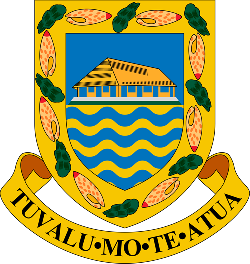Areas of Expertise
Project Status
Filter by project scope:
Project Type
Results
Project Coordinator: Susan TupulagaContact: susapaul@gmail.com ISAAC project is a 3 year project commencing in 2017 and funded by USAID and jointly implemented by SPC, SPREP and PIFS covering 4 countries including Tuvalu, Fiji, Palau and Samoa. The main focal areas of ISAAC project are awreness and capacity building, policy development, climate change adaptation divided across three main key result areas; 1. Intergrated Institutional frameworks and national capacity stregthened2. Accessing Climate Finance3. Regional cooperation and corrdination and stregtheningSome of the project's achievements include; 1. supporting the NIE accrediation process in providing assistance to develop tools under Ministry of Finance2.Supporting review of Environmental Impact Assessment3. Establishment of Environmental Social Safeguard (ESS) as one of the requirement for NIE Accreditation process4. Development of Payout policy and methodology for the Tuvalu Survival Fund5. Supporting 20 students to persue Project Management IV Courses6. Supporting the development of the Climate Change Web Portal7. Contribute and participate in Awareness Activities8. Establish Data and Information for vulnerable sectors (in progress)9. Awareness activities on the tools/policy and regulation developed (for 2019)
Objectives - is to strengthen the national institutional capacity of Pacific Islands Countries (PICs) to effectively plan, coordinate and respond to the adverse impacts of climate change and disaster risk. It is intended to build on existing multi-sector, whole of iland approaches that have been implemented successfully in other Pacific Countries.
Status: Completed
Climate change is a fundamental cross-cutting issue that undermines Tuvalu socio-economic development efforts. Tuvalu’s climate change priorities are articulated in the recently approved Te Kete Sustainable Development Strategy 2021-2030, national climate change policy, sectoral policies as well as in legislation such as the Tuvalu Climate Change and Disaster Survival Fund Act and Regulations. As indicated in the NDC, Tuvalu commits to a reduction of emissions of greenhouse gases from electricity by 100% by 2025. Emissions will be reduced from all other key sectors including Agriculture and Waste, conditional upon the necessary technology and finance. An updated climate change strategy is currently being prepared.
Objectives Fiscal revenue and impacts on Tuvalu capacity to implement national climate policies and international commitments Food security and development of national agriculture production Fishery and tourism Education Energy and water Infrastructure Disaster Preparedness and Management and resiliency of the health system
Status: Completed
